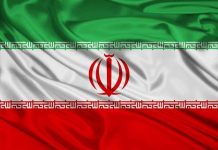Foreign News Desk
TASHKENT: The European Union and Uzbekistan held the 16th meeting of their Partnership and Cooperation Agreement Sub-Committee on Justice and Home Affairs, Human Rights and related issues. The meeting was held remotely via a video link between Brussels and Tashkent, the Delegation of the European Union to Uzbekistan reported.
This annual meeting covered a wide range of topics, including human rights- and democracy-related issues, counter terrorism, migration and border management, drugs policies, and the fight against corruption. Particular attention was given to the impact of the COVID-19 pandemic on the EU and Uzbekistan, and their respective policy responses as reflected in the thematic areas under discussion.
The European Union and Uzbekistan are intensifying their dialogue and cooperation across a broad range of activities, reflecting the EU’s 2019 Strategy on Central Asia, and Uzbekistan’s ongoing ambitious programme of reforms.
The EU and Uzbekistan are in the process of negotiating an Enhanced Partnership and Cooperation Agreement; a sixth round of negotiations took place on 29 September 2020.
The Sub-Committee reviewed and discussed recent developments in Uzbekistan relating to human rights, democracy, justice and home affairs. Participants agreed on the important role of civil society in providing checks and balances and for the rule of law. The Sub-Committee reflected on how best to enable civil society organisations to fully perform their important role to foster Uzbekistan’s resilience and prosperity.
Uzbekistan outlined the efforts being undertaken, and progress achieved, in rooting out child and forced labour, as recognised by the latest ILO Third-Party Monitoring Report. The EU commended Uzbekistan’s productive cooperation with the ILO, which continues to bear fruit. The importance of continued monitoring and cooperation with international and regional organisations, such as the UN, the ILO, and the OSCE, was emphasised. The EU welcomed Uzbekistan openness to UN scrutiny and called the country to continue to strengthen their involvement with UN Treaty Bodies and UN Special Procedures.
Notwithstanding positive developments in the context of Uzbekistan’s reform programme, including prisoner releases and the closure of the Jaslyk prison, the EU registered its concern at a number of challenges existing in Uzbekistan related to the freedom of expression, registration of NGOs, the persistence of torture and ill-treatment in the penitentiary system, gender equality and women’s rights, anti-discrimination. The EU called on Uzbekistan to take further commitments to eradicate torture, including by granting unhindered and independent monitoring to detention facilities. The EU also emphasised the need to rehabilitate former prisoners. Uzbekistan presented its priorities and measures to modernise its legal system and to improve the business climate, as well as to fight against corruption.
The EU and Uzbekistan also exchanged views on issues including violent extremism and radicalisation, migration and border management, and the fight against illicit drugs. Cooperation and dialogue programmes such as BOMCA (Border Management in Central Asia) and CADAP (Central Asia Drug Action Programme) provide an important platform for cooperation and support in these policy areas.




